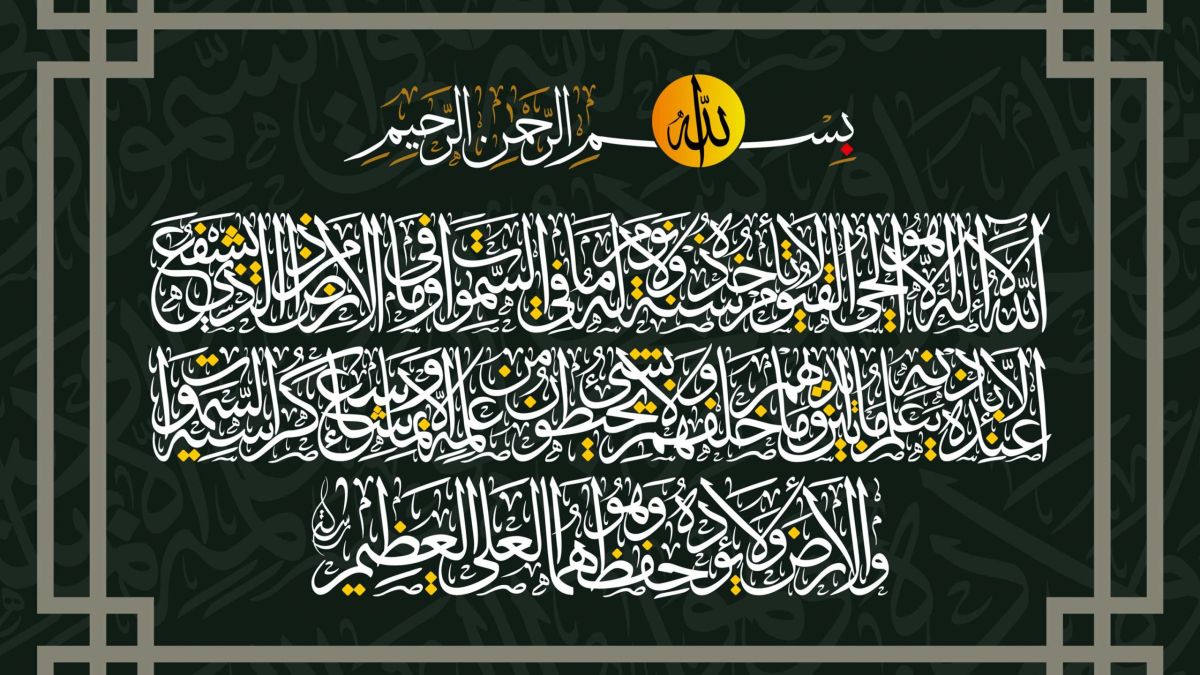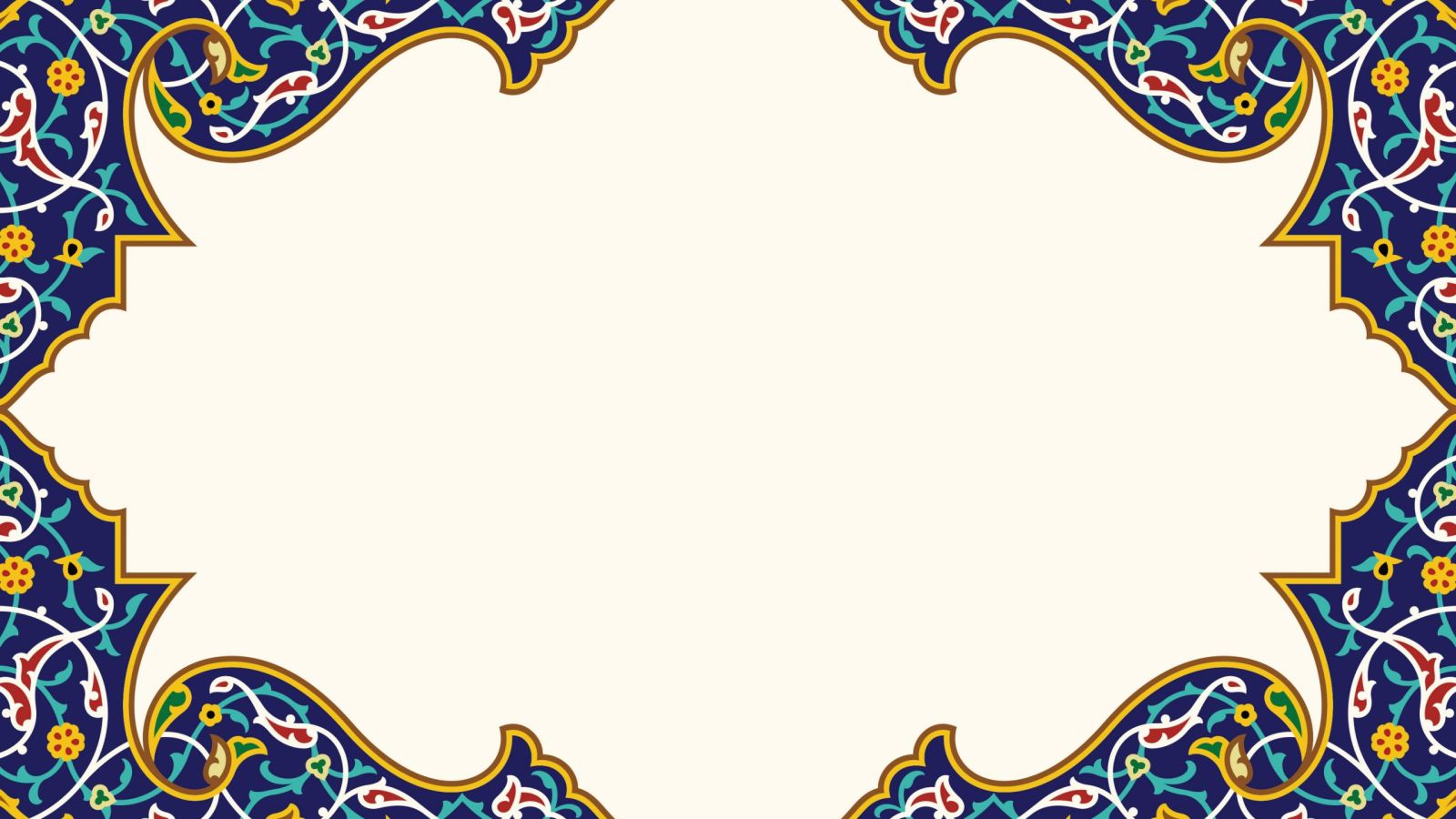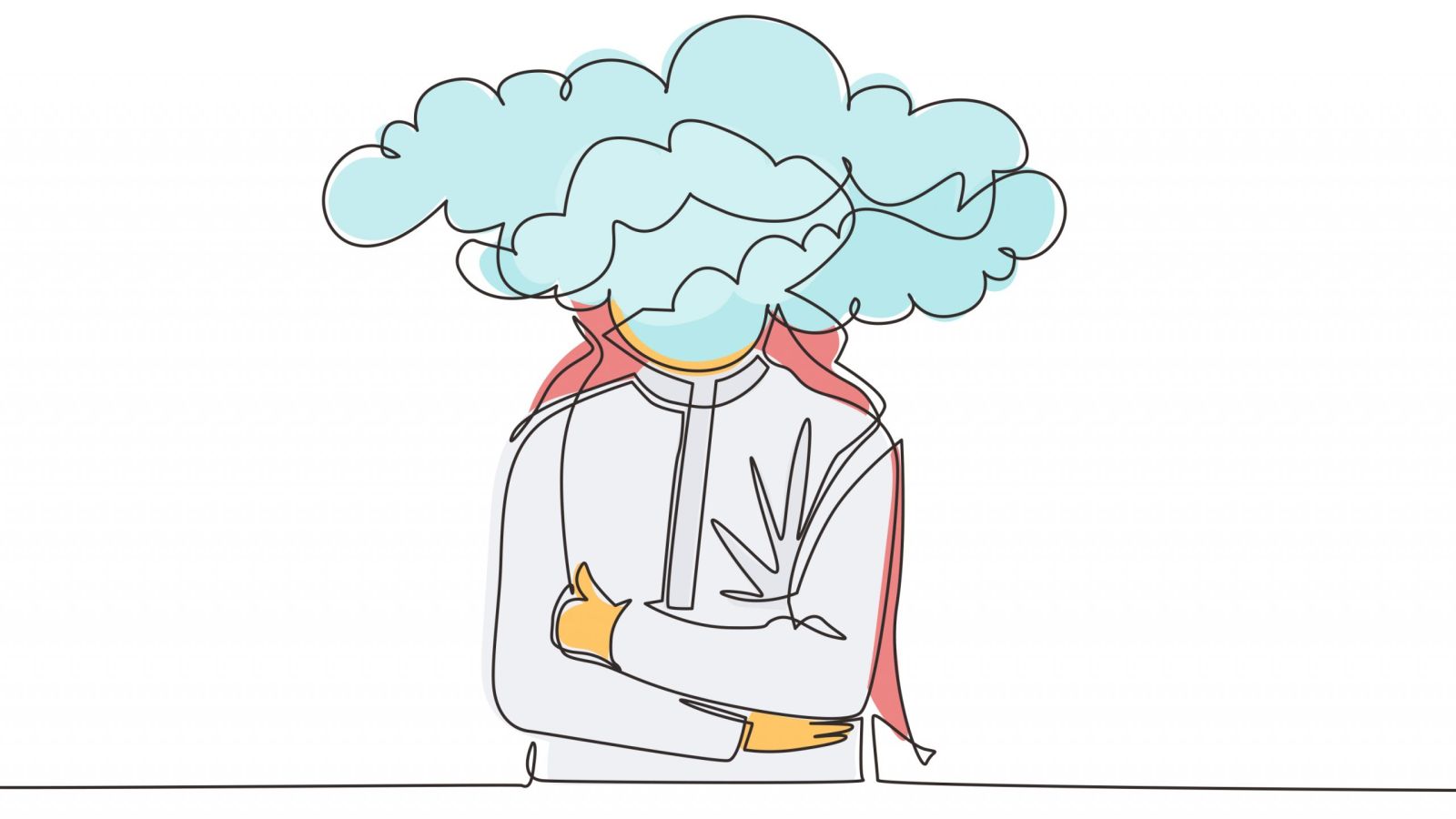The Tafsīr of Āyah al-Kursī
Imām ʿAbd al-Raḥmān ibn Nāṣir al-Saʿdī


اللَّهُ لَا إِلَٰهَ إِلَّا هُوَ الْحَيُّ الْقَيُّومُ ۚ لَا تَأْخُذُهُ سِنَةٌ وَلَا نَوْمٌ ۚ لَّهُ مَا فِي السَّمَاوَاتِ وَمَا فِي الْأَرْضِ ۗ مَن ذَا الَّذِي يَشْفَعُ عِندَهُ إِلَّا بِإِذْنِهِ ۚ يَعْلَمُ مَا بَيْنَ أَيْدِيهِمْ وَمَا خَلْفَهُمْ ۖ وَلَا يُحِيطُونَ بِشَيْءٍ مِّنْ عِلْمِهِ إِلَّا بِمَا شَاءَ ۚ وَسِعَ كُرْسِيُّهُ السَّمَاوَاتِ وَالْأَرْضَ ۖ وَلَا يَئُودُهُ حِفْظُهُمَا ۚ وَهُوَ الْعَلِيُّ الْعَظِيمُ ﴿٢٥٥﴾
“Allāh! Lā ilāha illā Huwa (none has the right to be worshipped but He), the Ever Living, the One Who sustains and protects all that exists. Neither slumber, nor sleep overtake Him. To Him belongs whatever is in the heavens and whatever is on earth. Who is he that can intercede with Him except with His Permission? He knows what happens to them (His creatures) in this world, and what will happen to them in the Hereafter. And they will never compass anything of His Knowledge except that which He wills. His Kursī extends over the heavens and the earth, and He feels no fatigue in guarding and preserving them. And He is the Most High, the Most Great.”
(Al-Baqarah, 2:255)
Imām ʿAbd al-Raḥmān ibn Nāṣir al-Saʿdī comments:
The Prophet (صلى الله عليه وسلم) has told us that this verse is the greatest verse in the entire Qurʾān without exception1, and that the one who reads it is protected from the Shayāṭīn and all forms of evil2. This is in relation to what it incorporates from tawḥid and Allāh’s greatness, and the magnanimity and grandiosity of Allāh’s—the Most High—attributes. For it is related therein that to Allāh belong all aspects of divinity, that no other being could be deserving of these divine attributes. Such that ascribing divinity to those other than Him and worshipping others besides Him represents unadulterated falsehood, and is harmful in this life and the hereafter. Worshipping Him alone and ascribing no partners to Him is the truth that delivers oneself to every aspect of true perfection. For He is the Ever-Living, perfect in His life. It is from this perfection that he is the All-Hearer, the All-Seer, the All-Powerful, whose knowledge encompasses everything in existence, perfect in every conceivable way.
His name ‘الحي [the Ever Living]’ stipulates all of His attributes of self and His name ‘القيوم [the One Who sustains and protects all that exists]’ denotes that he supports Himself while being above needing any of the creation. He sustains and protects them, after bringing them into existence and allowing them to remain, supplying them with whatever they require of sustenance. Thus, His name ‘القيوم’ denotes all of His attributes of action. It is for this reason that it has been narrated that the greatest name of Allāh—which if He is called by He answers, and if He is asked by He grants— 3“اللَّهُ لَا إِلَٰهَ إِلَّا هُوَ الْحَيُّ الْقَيُّومُ” This is because these two generous names are inclusive of His perfection both with regards to Himself and His actions.
It is from the perfection and completion of His life and His ability to sustain and protect everything in existence that ‘neither slumber, nor sleep overtake Him’, that is: he is above experiencing feelings of drowsiness. This is because such feelings are only experienced by the creation who inherently experience weakness, become disabled, and exhausted. Thus, the possessor of greatness and grandeur is above such attributes. He has related that He is the owner of whatever is in the heavens and whatever is on earth. Everything therein is in servitude to Him, and He owns them. This attribute is forever in attachment to them, none shall ever be extricated from it. He is the Owner of all owners for He is the one who is described with attributes of complete and perfect ownership, with the right of disposal that is complete and implemented. To Him belong all sovereignty and grandeur.
Then, it is in consideration of His complete ownership that none can intercede with Him except with His Permission. All notable persons and interceders are merely servants to Him, His property. Thus, none among them come forward to intercede on behalf of another until He has granted permission for them to do so:
قُل لِّلَّهِ الشَّفَاعَةُ جَمِيعًا ۖ لَّهُ مُلْكُ السَّمَاوَاتِ وَالْأَرْضِ
“Say: “To Allāh belongs all intercession. His is the Sovereignty of the heavens and the earth.”
(Al-Zumar, 39:44)
None is given the right to intercede before Him except those with whom He is pleased. He is not pleased except with those who establish His oneness and follow His messengers. Thus, whomever is not attributable to these acts will have no allotment of intercession. The greatest happiness experienced by one due to the intercession of Muḥammad (صلى الله عليه وسلم) are those who say: ‘There is nothing worshipped in truth except Allāh’, sincerely from their heart.4
Then, He informs us of His encompassing, comprehensive knowledge. That He is well-aware of what will happen to His creation in the future, which has no end, just as he is most knowledgeable of ‘ مَا خَلْفَهُمْ’ that is: events that preceded them which are without limit. No secret is hidden from Him:
يَعْلَمُ خَائِنَةَ الْأَعْيُنِ وَمَا تُخْفِي الصُّدُورُ
“Allāh knows the fraud of the eyes, and all that the breasts conceal.”
(Ghāfir, 40:19)
وَعِندَهُ مَفَاتِحُ الْغَيْبِ لَا يَعْلَمُهَا إِلَّا هُوَ ۚ وَيَعْلَمُ مَا فِي الْبَرِّ وَالْبَحْرِ ۚ وَمَا تَسْقُطُ مِن وَرَقَةٍ إِلَّا يَعْلَمُهَا وَلَا حَبَّةٍ فِي ظُلُمَاتِ الْأَرْضِ وَلَا رَطْبٍ وَلَا يَابِسٍ إِلَّا فِي كِتَابٍ مُّبِينٍ ﴿٥٩﴾
“And with Him are the keys of the ghayb (all that is hidden), none knows them but He. And He knows whatever there is in (or on) the earth and in the sea; not a leaf falls, but He knows it. There is not a grain in the darkness of the earth nor anything fresh or dry, but is written in a Clear Record.”
(Al-Anʿām, 6:59)
That is, none among His creation is able to encompass an article from the knowledge of Allāh, or the information He knows except that which He wills. They know only what He allowed them to be acquainted with, whether in relation to the orders of His legislation or this universe. Their knowledge represents but a miniscule portion of the knowledge of the Inventor of All Things. For all knowledge known to man is lost in the knowledge of the Inventor of All Things and His information. Just as the most knowledgeable among the creation, who are the messengers and angels, have testified:
سُبْحَانَكَ لَا عِلْمَ لَنَا إِلَّا مَا عَلَّمْتَنَا
“Glory be to You, we have no knowledge except what you have taught us.”
(Al-Baqarah, 2:32)
Then, He informs us of His greatness and Majesty, that His Kursī extends over the heavens and the earth. That He protects both of them and the universe contained therein by various means and systems which Allāh has instilled within His creation. Despite this, ‘He feels no fatigue’, that is, he is not taxed or exhausted as a result of protecting the heavens and the earth. This is due to the completeness of His greatness, the strength of His ability, and the encompassing wisdom of His rulings.
‘He is the Most High’: that is, physically above all of His creation. He is elevated above, and separate from His creation, while also being High by means of the greatness of His attributes. For every attribute of perfection belongs to Him, He occupies the very height and pinnacle of perfection in those attributes. He is the Most High, the One who subjugates all of His creation, everything in existence seeks closeness to Him, all difficulties are humbled before Him, all slaves feel humility before Him.
‘The Most Great’: the One who has combined every attribute of greatness, grandeur and glory. The One who is beloved in the hearts, whose greatness is recognised by the souls. The truly knowledgeable ones recognise that the greatness of anything in existence—even if that greatness is indescribable—fades next to the greatness of the Most High, the Most Great. So blessed be Allāh, the Owner of majesty and honour.
Thus, this verse comprises that which is considered the most magnanimous of meanings, the recognition of which is of the utmost obligation for the slaves of Allāh. Hence, it is most deserving of being the greatest of all the verses in the Qurʾān. The one who reads it while contemplating its meanings with clear understanding and comprehension will find his heart full of certainty, true recognition, knowledge and īmān. It is by means of this recognition that one is protected from the evils of the shayāṭīn. Furthermore, the Inventor of All Things has described Himself with these same attributes mentioned here in many other verses of His book.
Endnotes:
[1] Referencing the ḥadīth of Ubayy ibn Kaʿb (رضي الله عنه) who said: The Messenger of Allāh (صلى الله عليه وسلم) said: “O Abū al-Mundhir! Which verse in the Book of Allāh that is with you is the greatest?” I said: ‘اللَّهُ لَا إِلَٰهَ إِلَّا هُوَ الْحَيُّ الْقَيُّومُ’ So he (صلى الله عليه وسلم) beat my chest saying: “Congratulations on your attainment of knowledge O Abū al-Mundhir” Authentic: narrated by Muslim: 810.
[2] Referencing the ḥadīth of Abū Hurayrah (رضي الله عنه) wherein he was made responsible by the Prophet (صلى الله عليه وسلم) for guarding the ṣadaqah. He found a man stealing from it thrice, and on the third time he said to him: “Let me teach you words by which Allāh will benefit you. If you return to your bed, read āyah al-Kursī until you have finished it. A protector shall remain over you, and no shayṭān shall be able to come close to you until the morning.” When Abū Hurayrah (رضي الله عنه) related this to the Prophet (صلى الله عليه وسلم), he said: “He has told you the truth but he is a liar.” Authentic: narrated by al-Bukhārī: 4723.
[3] Referencing the ḥadīth of Anas ibn Mālik (رضي الله عنه) in which the Prophet (صلى الله عليه وسلم) said, upon hearing a man invoking Allāh with these two names: “He has invoked Allāh with His greatest name which if He is called by, He answers, and if He is asked by, He grants.” Authentic: narrated by Abū Dāwūd: 1495 and graded authentic by Shaykh al-Albānī in Ṣaḥīḥ Abī Dāwūd 1:279.
[4] Referencing the ḥadīth with this wording. Authentic: narrated by al-Bukhāri: 99.
Source: Majmūʿ Muʾalafāt al-Saʿdī 1: 26-28
Translated by: Riyāḍ al-Kanadī

















